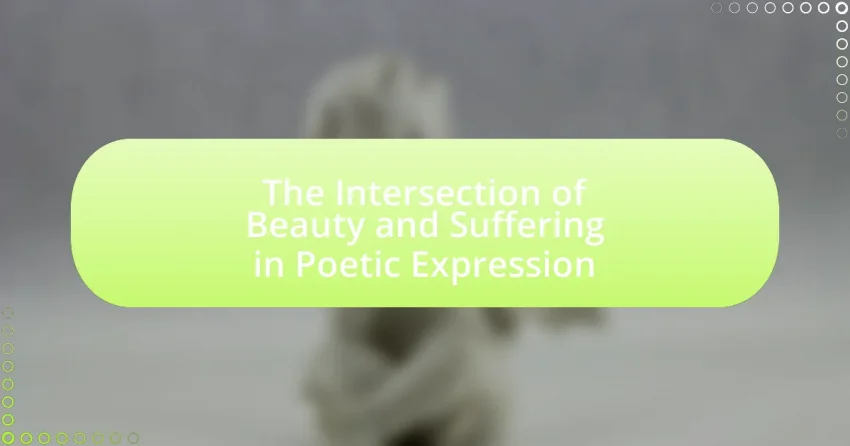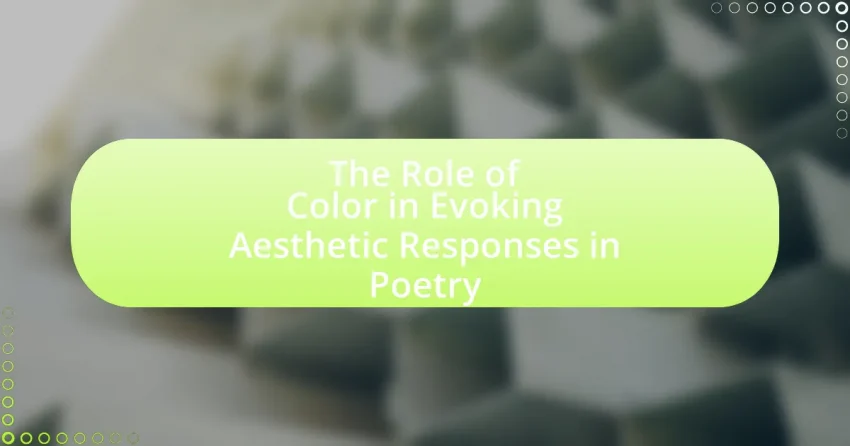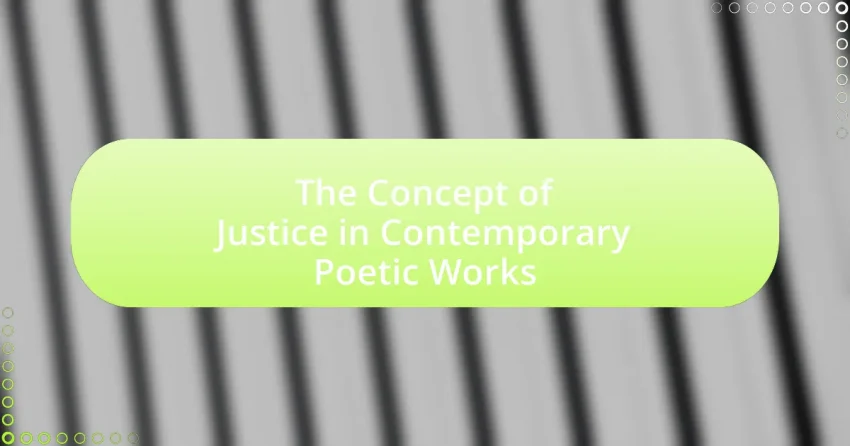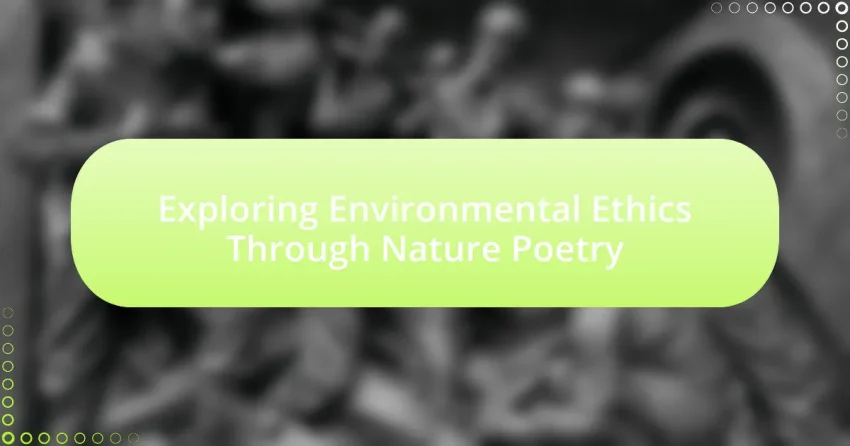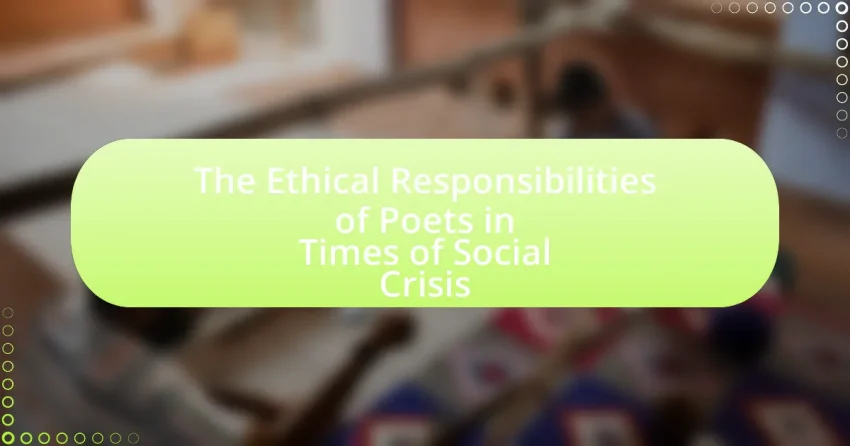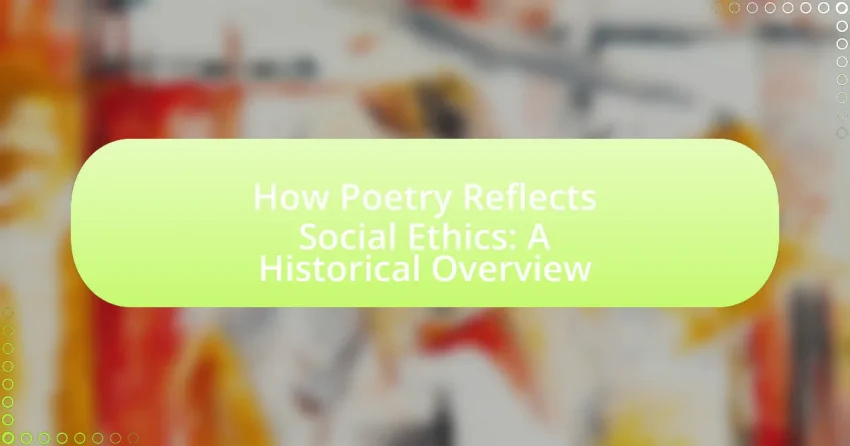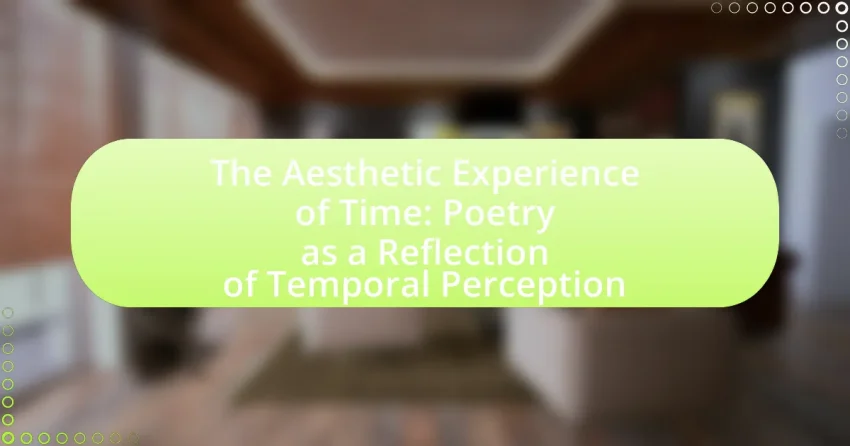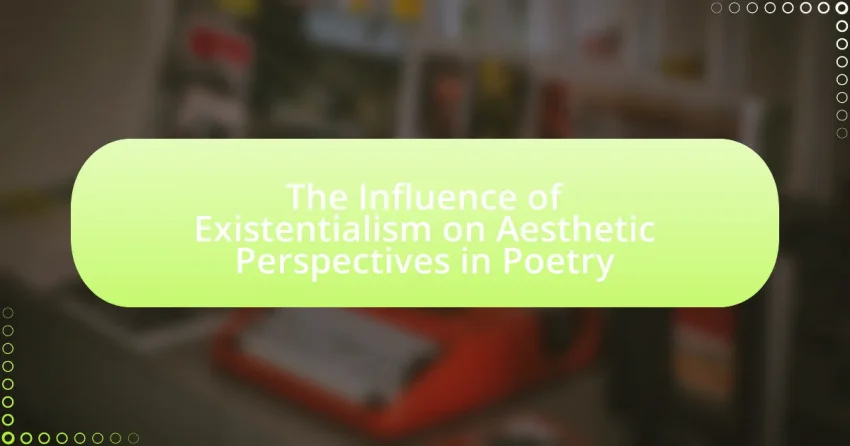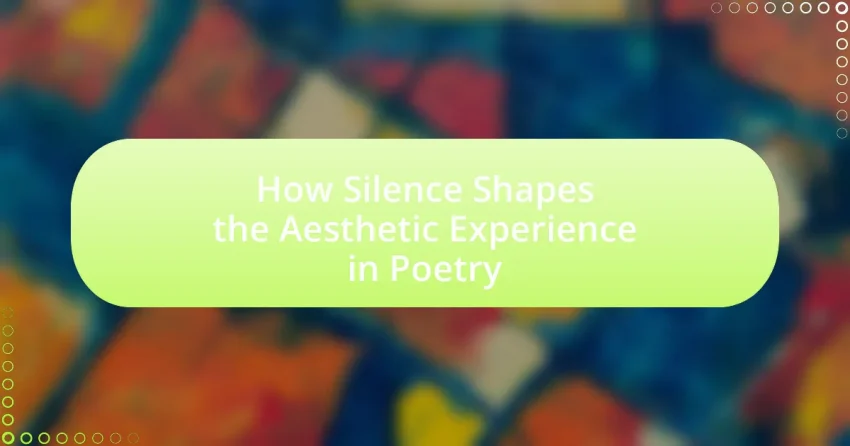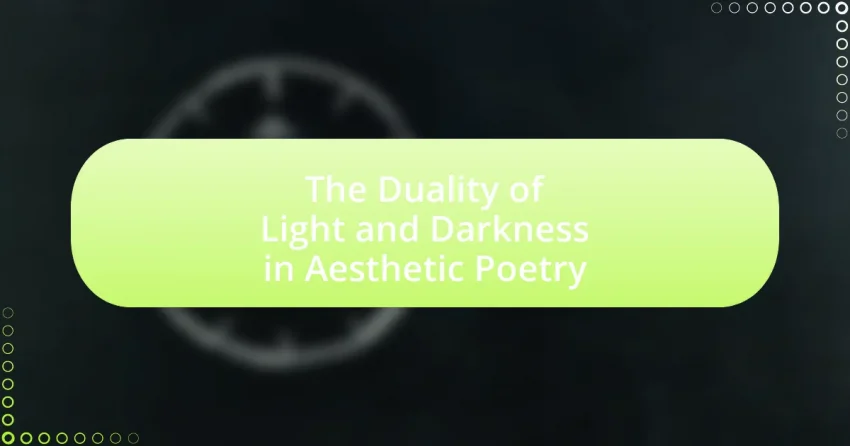The article examines the intersection of beauty and suffering in poetic expression, highlighting how poets utilize the juxtaposition of these elements to convey profound emotional truths. It discusses the coexistence of beauty and suffering in poetry, exploring historical contexts, cultural perceptions, and the significance of this exploration in understanding the human experience. Key poets such…
The Role of Color in Evoking Aesthetic Responses in Poetry
The article examines the significant role of color in evoking aesthetic responses in poetry, highlighting how poets use color to enhance imagery and emotional resonance. It discusses the psychological effects of different colors, their cultural interpretations, and how they influence emotional perception and thematic depth in poetic texts. Key techniques for incorporating color effectively in…
The Concept of Justice in Contemporary Poetic Works
The concept of justice in contemporary poetic works encompasses themes of social equity, personal accountability, and systemic injustice. Poets such as Claudia Rankine and Ocean Vuong utilize their craft to address issues like racial inequality, gender discrimination, and environmental degradation, serving as a medium for social critique and advocacy. The article explores how justice is…
Exploring Environmental Ethics Through Nature Poetry
The article “Exploring Environmental Ethics Through Nature Poetry” examines the moral relationship between humans and the natural world as expressed in nature poetry. It highlights how poets like John Keats and Mary Oliver reflect environmental ethical concerns by emphasizing the intrinsic value of nature and advocating for its preservation. Key themes such as interconnectedness, human…
The Ethical Responsibilities of Poets in Times of Social Crisis
The article examines the ethical responsibilities of poets during social crises, emphasizing their role in amplifying marginalized voices and addressing social injustices. It highlights how poetry can evoke empathy, provoke thought, and inspire action, with historical examples such as Langston Hughes and Maya Angelou illustrating the impact of poetic expression on social movements. The discussion…
How Poetry Reflects Social Ethics: A Historical Overview
The article examines the historical relationship between poetry and social ethics, highlighting how poetry has served as a medium for expressing societal values, moral dilemmas, and cultural critiques across various historical periods. Key periods discussed include the Romantic era, Victorian era, and Modernist movement, each contributing to the discourse on social ethics through their poetic…
The Aesthetic Experience of Time: Poetry as a Reflection of Temporal Perception
The article explores the aesthetic experience of time in poetry, focusing on how poets manipulate temporal perception to evoke emotions and convey meaning. It examines various literary devices, such as imagery, enjambment, and allusion, that poets use to illustrate the complexities of time. The discussion includes how different poetic forms influence the representation of time,…
The Influence of Existentialism on Aesthetic Perspectives in Poetry
The article examines the influence of existentialism on aesthetic perspectives in poetry, highlighting how this philosophical movement shapes themes of individual experience, freedom, and the search for meaning in an indifferent universe. It discusses the emergence of existentialism through key thinkers and its impact on poets such as T.S. Eliot and Sylvia Plath, who explore…
How Silence Shapes the Aesthetic Experience in Poetry
The article examines how silence influences the aesthetic experience in poetry, highlighting its role in reflection, emotional resonance, and interpretation. It discusses various forms of silence, such as intentional pauses, white space, and enjambment, and their impact on the rhythm and pacing of poems. Additionally, the article explores the cultural and historical contexts of silence,…
The Duality of Light and Darkness in Aesthetic Poetry
The article examines the duality of light and darkness in aesthetic poetry, highlighting how these contrasting themes symbolize complex human emotions and experiences. It explores the significance of light as a representation of hope, clarity, and beauty, while darkness embodies despair, confusion, and the unknown. The discussion includes notable poets such as John Milton and…
